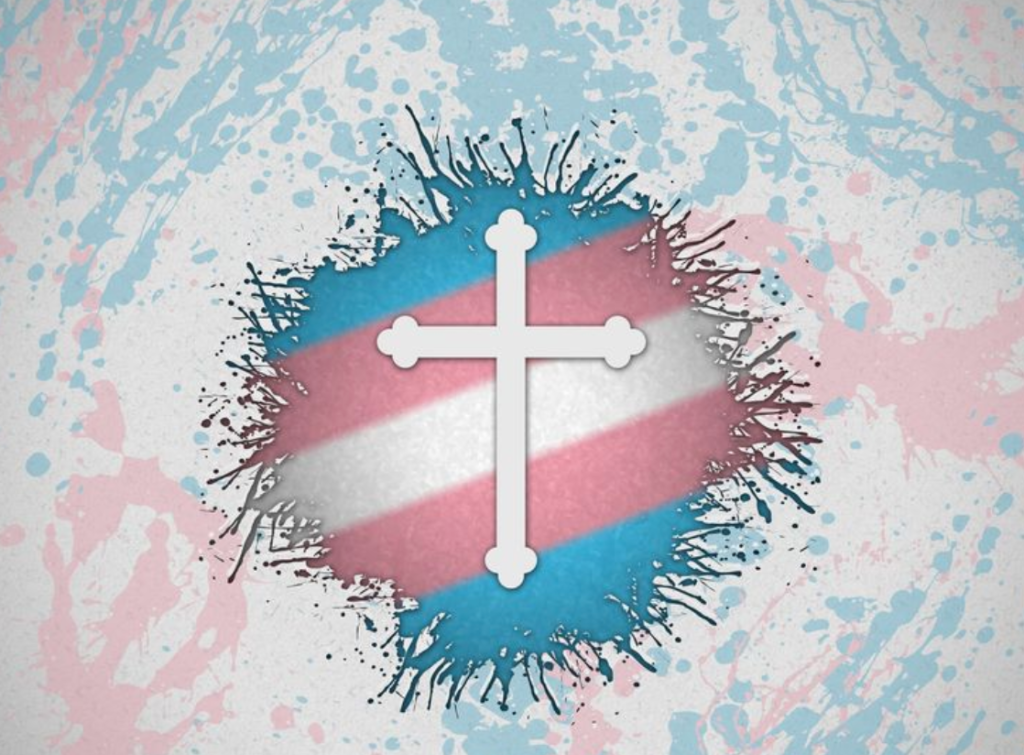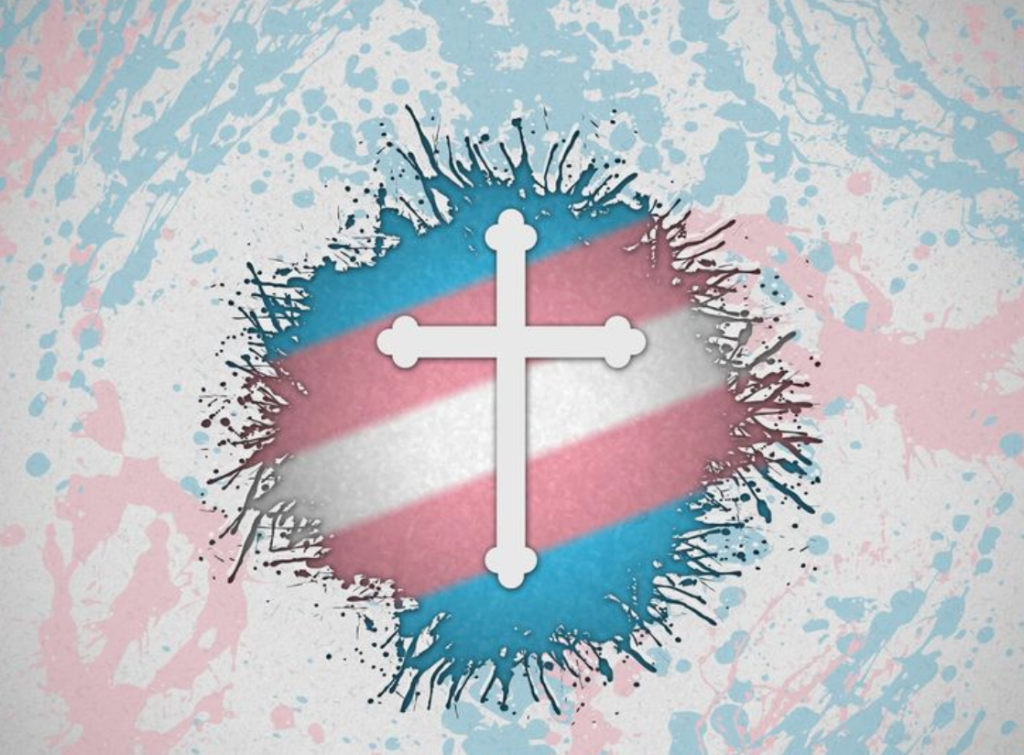
This Washington Post story is terrible religious journalism, and not because I’m opposed to the trans cult. Let’s see why:
CEDAR RAPIDS, Iowa — Sid High left church years ago but stayed devoted to God, and so, one Sunday this fall, the teenager and his family gathered in their living room to watch a sermon on YouTube.
His three sisters dragged themselves to the couch, weekend-tired and silent, but Sid plopped down next to his parents with a goofy grin. He’d been up for hours. Every morning, he lined his bay window with prayer candles he bought by the case from the Dollar Tree, and he prayed for everyone he knew.
When the pastor of a local Presbyterian church appeared on screen, Sid adjusted the funky button-down shirt he’d found at a thrift store, and he sat a little straighter.
“Today, we’re going to hear a little story about Jesus,” the minister said. “Jesus is on the way to Jerusalem, and some people called the Pharisees come up to him, and they say, ‘Hey, Jesus, watch out. This king named Herod is after you. He wants to harm you, so you might want to run away.’”
Sid understood that kind of danger. He was 18 and transgender in a world that felt increasingly hostile for young people like him. One group of parents had sued the local school district over its trans-friendly policies, and another had managed to shut down a nearby library because it displayed LGBTQ books. Iowa’s governor had even made condemning trans kids a signature part of her reelection campaign.
People misgendered Sid at work, and teenagers posted mean comments on the TikTok page where he lip-syncs to “Pumped Up Kicks” and other pop songs. Even some of his fellow Christians were becoming more intolerant. Nearly 70 percent of White evangelicals think society has gone too far in accepting trans people, according to data the Pew Research Center released in the summer. That’s up from 61 percent five years ago.
“But Jesus was determined,” the pastor said. “He loves these people that will end up rejecting him. … Let’s have a prayer, shall we?”
Sid closed his eyes. He knew people thought you couldn’t be both Christian and trans, but as the country grew more divided, he found himself growing deeper in his faith. Maybe, he thought, he could do what Jesus had. He could move forward bravely in the face of danger, refuse to stop loving and spread a message of hope.
Et cetera, et cetera. People were mean to Sid, who is biologically female. This is not necessarily a bad lede. Sid has real problems figuring out her gender, her faith, and how to relate to society. But then:
The family joined a Methodist church when Sid was 13, and it became the center of their world. Jess taught vacation Bible school, and Sid volunteered to interpret sign language for services. They never skipped a Sunday.
Occasionally, someone at church described homosexuality as a sin, but Sid’s parents didn’t agree with them. The Highs are the kind of Christians who dig into etymologies and Greek translations, and the longer they studied Leviticus and Corinthians, the more they believed that translators had misinterpreted words to turn scriptures into weapons.
Sid looked, but he didn’t find any verses about trans people. The only thing he ever heard people say was that God doesn’t make mistakes. But if that were true, Sid thought, didn’t that mean God had created him exactly as he was — gender dysphoria and all?
He wasn’t sure. He’d never met another trans person, let alone a trans Christian, and he wasn’t sure if his life was acceptable to God, sohe beat back his feelings with bright lipstick and the occasional frilly dress.
OK, we get it. Sid’s family are bright Christians. They never missed church. Incredibly, Sid the Trans Proof-Texter didn’t find any lines about trans people in a book 2000+ years old. I’m still not frustrated with this story, because the writer, Casey Parks, is telling the story at this point from Sid’s point of view. Eventually we will get to the part where theologians explain the Christian objection to transgenderism. Right?
At last, very deep into the story, Sid’s pastor speaks:
A few weeks later, Sid says,the pastor, a woman, pulled Sid aside and told him homosexuality was a sin, and if he acted on it, he would go to hell.
Sid believed hell was a place where people were tortured forever, and as the pastor walked away, Sid’s throat tightened. Surely, he thought, the pastor knew the Bible better than anyone. Was he unworthy of God’s love?
Sid held back the tears until his mom picked up. He climbed into the passenger seat, then sobbed so hard his whole body shook.
“What’s the matter?” Jess asked.
Sid’s voice broke when he tried to speak.
“Am I going to hell?” he asked.
Jess looked at her kid, a skinny thing with big eyes and a gentle disposition, and she felt as if her heart had fallen to her feet. Sid was the kindest person Jess knew. He helped out around the house, and he volunteered at the library. He treated everyone, even those who discriminated against him, with love and respect. God had to love this kid, she thought.
“Absolutely not,” Jess told him. “God does not make mistakes. God made you perfectly.”
I wonder if the pastor put it exactly like that … or if this is a tendentious recollection told by Sid’s family to a sympathetic reporter? There’s no “The pastor declined to speak to the Post for this story.” Sid’s hairdresser mom’s theology is as crude and simplistic as her pastor’s — assuming that the Post’s reporting on what the pastor said is faithful to the record, meaning that the pastor just bluntly told Sid she would go to hell if she had gay sex. It is certainly true that Biblical Christianity — as distinct from its modernist versions — says that people who have gay sex (or other kinds of immoral sex) are in danger of hell. The New Testament is very, very clear about that. This section above is where the religion journalism gets terrible. The pastor did not say that Sid is “unworthy of God’s love,” as the reporter has it. The pastor said that if Sid acts on same-sex desire, Sid is in danger of hell. That’s what the Bible says. No getting around that.
Anyway, reporter Casey Parks is surely going to tell us what Christian theology has to say about homosexuality and transgenderism, yes?
No. Nowhere. The story goes on and on, talking about how tender and confused Sid is (Sid has autism, by the way), and how horrible people in the community were to her. All of which might be true, and yeah, if people are mean to this kid, shame on them! But the cruelty Casey Parks enumerates includes people objecting to Sid organizing a Drag Queen Story Hour at the local library.
It ends with a long section about how Sid re-invented herself as an online teen guru for queer Christian kids. And that’s it! There is nothing in this story about how Sid and her family reconciled what Christianity taught for nearly 2,000 years about homosexuality. Nowhere does it explain why orthodox Christianity objects to transgenderism. It’s one big sugar bomb of sentimentality, about how a plucky trans kid and her supportive family overcame the HATERS.
The thing is, there really is a story here. What would you do if you were a Christian family who had a kid like Sid? How would you help him or her deal with this crisis? Sid does not deserve cruelty — but Sid also deserves to know the truth, if she is going to be a faithful Christian. The Washington Post’s readers need to understand that there is a heck of a lot more to Christianity’s critique of homosexuality and transgenderism than this Hallmark-card crap. I mean, even if they reject what Christianity teaches about LGBT, they should at least be spoken to like adults, not half-drunk wine moms.
Casey Parks is an openly gay reporter who grew up in north Louisiana — very Baptist-y and Bible Belt-y — and according to her account, was treated with inexcusable meanness by members of her family and community. I get why she is sympathetic to Sid. But she seems to have the idea that the most fundamentalist, crude forms of Christianity are all there is — that you can either be totally liberal and affirming, or you prowl around looking for gay kids to bash with your Bible. She seems to think that difficult theological problems within Christianity can be solved by simply deciding that Scripture and two millennia of tradition are worthless when they don’t affirm what liberal North Americans in the 21st century want to believe.
I wish I could say I expected better journalism from a paper of the status of the Washington Post. Notably, Casey Parks is not on the religion beat at the Post, but is on the “social issues team.” That’s probably part of the problem. Still, as an actual professional news organization, was there not an editor who said, “Say, Casey, we should have a comment from the accused pastor, or at least be able to say that she declined to comment”? Was there not an editor who said, “Say, Casey, are you sure that this story adequately explains what Christianity teaches?” Something. Anything. Anything but this propaganda. Or maybe this is what you get when you have a newsroom full of people who all think alike.
I mean, look:
Occasionally, someone at church described homosexuality as a sin, but Sid’s parents didn’t agree with them. The Highs are the kind of Christians who dig into etymologies and Greek translations, and the longer they studied Leviticus and Corinthians, the more they believed that translators had misinterpreted words to turn scriptures into weapons.
Subscribe Today
Get weekly emails in your inbox
Why did they believe that? Sid’s mom is a hairdresser. How did she and Sid’s father come to this conclusion? Casey Parks and her editors just accept this. You know what you would never see in the Washington Post? A line saying, without challenge, “The longer they studied science textbooks, the more they believed that the authors had misinterpreted the data to trick Christians into believing that the earth was more than 6000 years old.”
You know, if they had called the pastor, she shouldn’t have talked to the Washington Post. I wouldn’t. Not anymore.
UPDATE: Of course. There’s the answer, staring me in the face. For the media class — and, frankly, the US ruling class — traditional Christian belief about LGBT is so strange and repulsive that fairness and complexity when reporting on it is not necessary. They might as well be Victorians writing about some primitive mystery religion encountered in the African bush. Do keep in mind that these are the people establishing the narratives about us.








